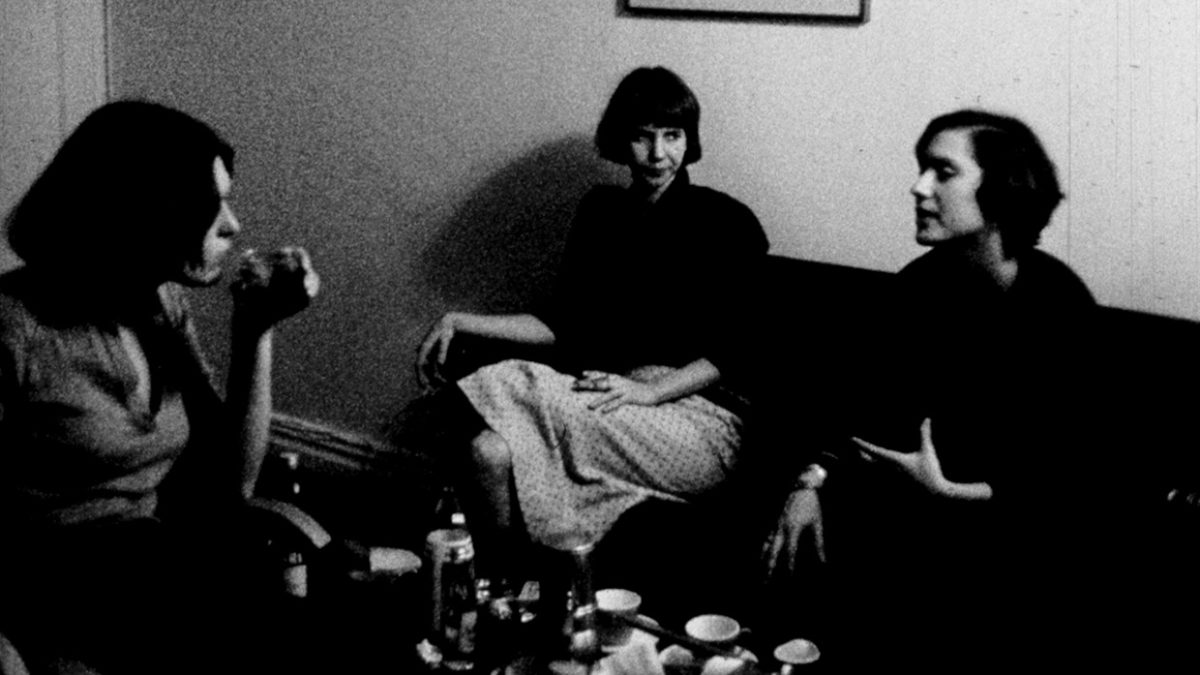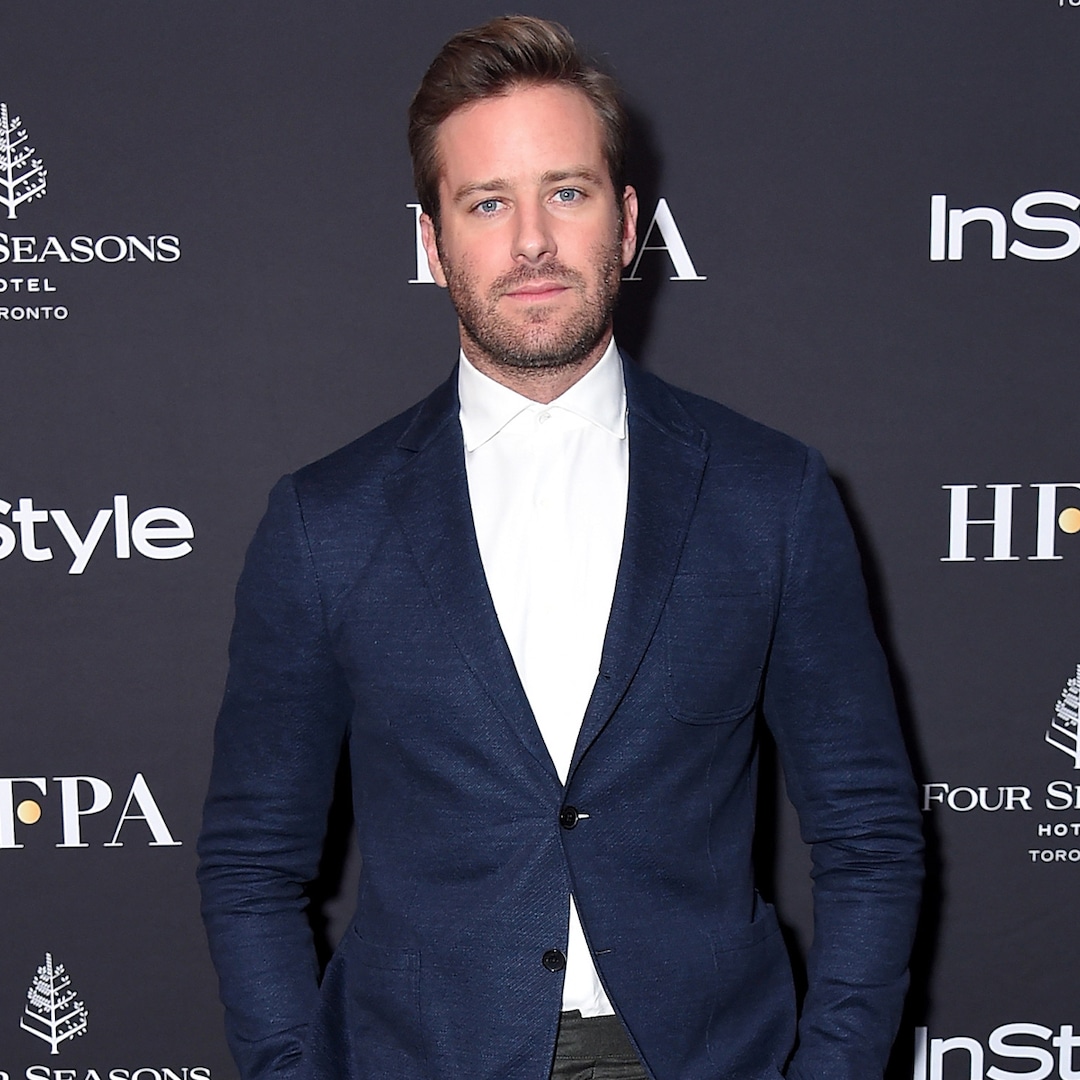
“Everything About Women Interests Me”: Lizzie Borden on the New York Feminisms Trilogy
May 19, 2024
Regrouping
In 2022, Lizzie Borden’s virtually unseen first feature Regrouping was restored and given its first-ever theatrical run. That film joins the now-canonical Born in Flames (1983) and Working Girls (1986) in what some have termed her “New York Feminisms” trilogy, all three of which are now screening together on the Criterion Channel for the very first time. Together, the three films set a blueprint for a contemporary model of feminist filmmaking deeply situated in her place and time that prioritized discussion and conflict as ways of building something new. A long-time fan and recent friend of Borden, I sat down with her to discuss the legacy of her alternatively incendiary and intimate body of work.
Rovinelli: The streaming release of Regrouping, Born In Flames and Working Girls on the Criterion Channel is kind of your first full retrospective of the works that you consider your own, right?
Borden: Yes, the three films So Mayer dubbed my “New York Feminisms” trilogy. They were shown together at the Anthology Film Archives and a few other places, but this is the first time they are streaming. Seeing them together has been extraordinary for me, because seeing Regrouping in the light of the other two has helped me understand the other two better.
Rovinelli: For me and a lot of audiences, the re-release of Regrouping almost feels like we got a new Lizzie Borden film, because none of us had ever seen this before. It’s finding an audience for the first time. How have you felt that audiences are reacting? What does it feel like to put this film out in 2022, really for the first time?
Borden: In 2022 it was really anxiety-provoking, because I didn’t really know what I was going to feel seeing it again or what audiences were going to feel. It felt strange to be releasing such an experimental film at that point, a film I had put it away for strong, specific reasons. When I re-saw it in 2022, I didn’t know whether I would have those feelings again to be able to reconstruct why I edited the film the way I did. I’ve seen Born In Flames and Working Girls so many times, I understand why I made every choice I made. With Regrouping, I had to rethink editing choices, like going to black or taking sound away. I had to rethink why and how I opened the film up to include the second group after I showed a cut of the film to the first group. I had to watch it a few times before it cohered as a movie.
Jessie, I remember the time you did the Q&A with me at Anthology Film Archives—the first time it was shown again—because people seemed to be into the film, finding it funny in some places, which was intentional. Then, over the course of a few other screenings, discovering that people of younger generations in the US and Europe were still interested in groups was validating, because I wanted to open the film up from being about one woman’s group to being about the dialectic of group process. Yet, at the same time, I wasn’t sure how audiences might feel about seeing such an experimental film from me after Working Girls.
Rovinelli: But in a way, it’s sort of beautiful that it came out at the end, because it really opens up the later films and reminds us that they are all a cross-cutting of voices. Regrouping is the most radical in the sense that it’s just people talking and we have to piece it together ourselves, but that doesn’t change that every single one of your films is about women talking to each other. I know we’ve talked about that a lot.
But I was thinking: You’re interested in women’s talking, but you’re also really interested in women’s bodies. In Regrouping you see that in the experimental ways that you’re showing these women with your camera in moments of undress and moments of sociality. That stays in Working Girls. We see how women clothe themselves, how they unclothe themselves, how they hold themselves. So, what interests you most about filming women? Are there things you’ll never do? Are there things you want to do? What’s your favorite thing about the act of shooting a woman with a camera?
Borden: I was fascinated by women’s bodies in Regrouping. The original group in the film fascinated me because they were attractive, bold, dressed and self-possessed. I met them through Joan Jonas, who often performed nude—as did many of the artists and dancers I wrote about when I wrote for Artforum, like Carolee Schneemann, Yvonne Rainer and Hannah Wilke. so an interest in women’s bodies wasn’t unusual at that time. One of the constant discussions among the women in the first group in Regrouping was sexuality, so after I opened the film up, I filmed other women in various group situations—in showers, in elevators. Because the film was so DIY, it was often covert and I sometimes felt voyeuristic. In a scene toward the end, I was interested in dressed bodies dancing together, taking away the music to see how each woman expressed who she was while holding her own space. I wasn’t thinking of the word “gaze” then, but I was a woman looking at women. By the end of Regrouping, the dancing—I hope—becomes an expression of joy and power.
Born In Flames is different. The only voyeurism comes from the faux-FBI spying on the women and fascinated by their sexuality—i.e. lesbianism. I was drawn to strong women—and therefore bodies—of some of the women of color and lesbians who ended up being in the film, although Isabella from pirate radio station Radio Ragazza is petite and Flo Kennedy was almost disabled at the time. I wanted women who were “real,” not traditionally “prettified” as in most films. Some of the women, if they’d had the chance today, might have been trans. Some of them—especially Jeanne [Adelaide] felt solid and secure in their bodies. In the film, they were going after construction jobs. So, “bodies” was part of a theme of the film—labor.
Working Girls is different again because while it is about naked bodies—women working in a brothel, I wanted to shoot it in a way that makes the women’s bodies almost prosaic. Unlike a recent film like House Of Tolerance, every shot is composed from a non-voyeuristic angle, the way the lead, Molly, or the other women would or could see themselves. Their nudity is matter-of-fact. The men’s “nakedness” is often presented as comic. Nothing is erotic. I would never shoot a crotch shot, a man talking about a woman’s “sex,” cutting a woman’s face.
Rovinelli: It sounds like you’re describing that you are a filmmaker who asks questions of women in order to understand the world and to understand yourself.
Borden: Yes, in many ways. I started Regrouping as a question about a group. I was in it but realized I didn’t like being in front of the camera in any way and also realized I never wanted to make a film about myself, “me.” Born In Flames was predicated on a political question I wanted to explore. I made Working Girls after working in a brothel for money to help finance Born In Flames, but the lead character isn’t “me.” It doesn’t explore her psychology, and her personal information are mis-guides.
Rovinelli: What is the thing that interests you right now about women today?
Borden: Everything about women interests me—young women and how they are affected by social media, how right-wing women can be so misguided. But in terms of making films, I’m interested in women in extreme situations. Those committed to underground political activity or even trying to complete something when pushed against the limits imposed by aging. Many of the women I’m fascinated by—those fighting injustices on the front lines in other countries, or trans injustices—I have to watch since there are brilliant, brave filmmakers making those films and not mine to make.
Those I want to make are about women pushed to the edge politically here. How can one be effective if one can’t go the traditional political route? How does one do it underground? I’m fascinated by a woman several years ago, Ursula Wing, who illegally distributed mifepristone, the abortion pill. I know women are doing it now and that is wonderful. People are distributing hormones. It is hard to contain one’s anger—or maybe the point is not to.
Rovinelli: You are one of the biggest influences on my own filmmaking. I think a lot of other younger filmmakers feel that way. And with this retrospective on Criterion, you’re going to open up to a pretty broad swath of young people. Is there something you hope the younger generation takes away from your films?
Borden: There have been so many younger generations. When the film first came out, I think Born In Flames was most liked by women. I remember being surprised after Occupy Wall Street that young men came to it. The film is always more “current” when the political situation is dire. What I hope for young people is the same as what I hope for anyone who watches it—that it is a call to action. But what I find so fascinating is how different Born In Flames seems to younger generations, although it is the same film—each generation brings something of their own to it, which I learn by talking to them or reading social media.
Working Girls was not available for a long time. I was surprised, when it was shown again, that some sex workers still found it relevant. Sex workers, especially post-pandemic, often work through social media, so I didn’t realize a brothel from the ’80s would resonate. But some women, men, trans sex workers I have spoken to have related to the camaraderie among the sex workers in the film, as well as the matter-of-fact way sex work was portrayed.
Why were these films influential to you?
Rovinelli: Because they were a conversation that I felt like I could be part of. I remember getting Working Girls on a Netflix DVD in 2007, because I’d seen Born in Flames and I was like, I need to see whatever else this woman has done. On the one hand, I saw problems that of course still exist today, but as a viewer you feel like you’re participating in this discussion about what a future could be, and we all get to fight about it. I think that’s what’s really exciting for us is that so much of cinema can feel didactic, it can feel patriarchal, it can feel overpowering, it can feel top-down, but your cinema gives us a second to imagine what we might actually want from the future. And it said to me that maybe I could make a film that could participate in that. Maybe I could also be a part of this conversation. The way you work with form gives us space to actually enter that and feel it.
I saw your films when I was young before I had a sense of myself as a woman, and I will say a lot of what we might term “women’s cinema” can feel like there’s no space in it for me. I never felt that way about your films. I think because your films are always asking the questions, what is a woman? What can a woman be? You don’t have an answer to that question. And I think that that was something that probably felt very freeing for me as a young person. I hope other young people encountering your films feel that as well.
Borden: Maybe it is also because there are no men to identify with in any of the three films. In Regrouping, there are no men at all. But for me it’s a question of how women relate to other women in groups, as you first pointed out to me at the Anthology Film Archives screening. Women group and regroup occurs in all the films. This also happens in the book I edited, Whorephobia, where some strippers/writers talk about it in their interviews. I think that a lot of being a woman is performative, especially for strippers. I have always been fascinated by them since first seeing Cookie Mueller strip downtown in a dive bar. I have such awe and respect for these goddesses who can get on a stage and perform—in strippers’ shoes, which I can’t imagine wearing.
I always wanted my films to ask questions, leaving them open-ended at the end. With Regrouping, the last line is “But I don’t believe you”—leaving room for argument, dialectical. With Born In Flames, what happens after the last shot, after the transmission tower of the World Trade Center is blown up? In Working Girls, will Molly go back to the brothel, see the client who gave her his business card? Find a straight job?
Maybe younger generations are more open about these films now because they are so exploratory and sophisticated. They all have iPhones, know editing and how to follow complex timelines. Do you think that’s true?
Rovinelli: I’m very optimistic about the youth. When I go to repertory screenings in New York City, when I was younger, I would always be the youngest person there and they’d be empty, and now it’s filled with 20-year-olds and it’s sold out. To see a Chantel Akerman musical sold-out at Anthology Film Archives on a Wednesday stunned me and I was like, “Oh, great, the future of cinema is going to be wonderful.” I think we need producers that are ready and willing to sort of tap this young, excited audience. I was going to ask you just one more question and the question was just going to be, “What excites you the most about cinema today?”
Borden: In the “old days” there were distinct categories of films—features, documentaries, shorts. Because women made a lot of shorts and documentaries, they weren’t as respected. Now there are many, very respected and many more places showing them. Films/shorts are also shown on the web, any length, very inventive, much more than in the past. I always ask younger friends what they’re watching. Every half-generation there’s a newer aesthetic and politics. I know I won’t have a chance to see a lot of cutting-edge films. A lot won’t make it out of festivals and many festivals have become so straight, big business now. Many films are posted on YouTube but I don’t know where to look. The wealth of invention today is exciting.
Publisher: Source link
Aubrey Plaza Issues Statement After Jeff Baena’s Death
The 40-year-old star and Jeff’s family issued a statement to People on Monday, where they called their loss an “unimaginable tragedy.”The Los Angeles County coroner’s office previously determined that Jeff died by suicide in his LA home. He was 47…
Jan 10, 2025
Jill Duggar’s Husband Clarifies Where He Stands With Jim Bob Duggar
Jessa Duggar (m. Ben Seewald)Jim Bob and Michelle's fifth child, Jessa Duggar, was born Nov. 4, 1992. Jessa met Ben through church and he began courting her in 2013—the old-fashioned approach to romance coming as a brand-new notion to a lot…
Jan 10, 2025
The Internet Has Officially Lost It Over Andrew Garfield's Slutty Glasses
That man knew exactly what he was doing with those glasses.View Entire Post › Disclaimer: This story is auto-aggregated by a computer program and has not been created or edited by filmibee.Publisher: Source link
Jan 9, 2025
Armie Hammer Lands First Movie Role Since Cannibalism Allegations
Armie Hammer Cameos As “Kannibal Ken” in Music Video 4 Years After Cannibalism ClaimsArmie Hammer is heading back to the big screen. More than one year after the Los Angeles Police Department ended their lengthy investigation into the Call Me…
Jan 9, 2025











